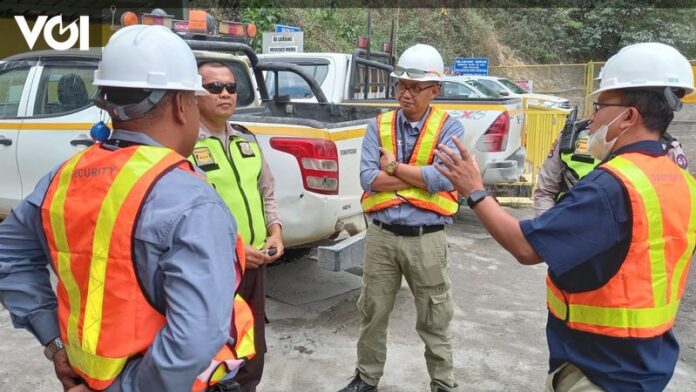Economic Instability and Security Concerns in Indonesia
The Rising Threat of Economic Instability
In Indonesia, a significant wave of economic instability is emerging as the principal security challenge facing the nation. A recent survey revealed that 71 percent of security leaders in the country view economic instability as the most pressing threat to security over the next year—this statistic is notably the highest in the world. The interplay between economic conditions and security threats creates an atmosphere of uncertainty that is particularly concerning for corporate leaders and organizations.
Misinformation Campaigns Amplifying Risks
Adding fuel to the fire, the dynamics of public misinformation and unrest have exacerbated tensions within the corporate landscape. According to the survey, 62 percent of respondents noted a substantial increase in threats of violence toward company executives over the past two years. This figure significantly surpasses the 46 percent average across the Asia Pacific region. The increase in these threats demonstrates how social unrest can directly impact business safety and operational stability.
Defensive Strategies of Corporations
As a response to these escalated risks, numerous organizations are taking proactive measures to strengthen their protective strategies. The survey underscores a trend toward enhancing security measures, crisis communication, and comprehensive planning to safeguard both employees and company reputations. A combined effort has emerged to integrate advanced technology with traditional security measures, illustrating a forward-thinking approach to corporate safety.
Insights from Industry Leaders
Achmad Kosasih, Managing Director of G4S Indonesia, emphasized the heightened risks faced by corporate leaders, primarily driven by persistent economic uncertainties. He pointed out that misinformation campaigns have proliferated in this environment, often serving as a catalyst for various groups targeting businesses in Indonesia. Kosasih’s insights highlight a need for robust defense mechanisms to protect companies from both external and internal threats.
Community Engagement and Security Development
In response to these challenges, companies in Indonesia have shown a commitment to enhancing their security measures. Notably, 71 percent of Indonesia’s firms have increased security procedures, eclipsing the 52 percent average for the Asia Pacific. Furthermore, 60 percent provide close security personnel for executives, surpassing the regional average of 40 percent. This proactive approach positions Indonesian companies at the forefront of executive protection in a global context.
Technological Advances in Corporate Security
Investing in the latest security technologies is a notable trend, with 60 percent of Indonesian firms planning to integrate AI-based systems for intrusion detection and 55 percent focusing on biometric access control technology. These figures are reflective of a broader commitment across the nation to adopt cutting-edge solutions to combat escalating security challenges.
High Stakes for Internal and External Threats
The survey also identified an alarming reality: 86 percent of companies reported being targeted by misinformation campaigns, the second highest level in the Asia Pacific. Security leaders labeled external fraud as the primary concern for 40 percent of respondents, a figure that further underlines the precarious situation in which Indonesian corporations find themselves. Notably, 41 percent identified internal fraud as a critical threat, a rate that ranks among the highest globally.
Shifting Perspectives on Security Strategies
The security landscape in Indonesia is evolving. A striking 93 percent of surveyed security leaders expressed agreement that physical security should be prioritized within business operations—a perception that aligns with emerging global trends. Furthermore, 97 percent acknowledged the increasing importance of frontline security personnel over the past five years, indicating a shift toward more proactive and adaptive security strategies.
Continual Investment in Security Resources
The urgency to enhance security capabilities is palpable in Indonesia. A striking 71 percent of security leaders anticipate budget increases for physical security in the upcoming year, which not only reflects heightened awareness but also a commitment to adapting to an ever-evolving threat landscape. These leaders are not only focused on protecting assets but are also investing in their personnel’s skills, recognizing that human expertise is crucial in navigating complex security challenges.
Strategic Responses to Macro Dynamics
Sanjay Verma, President of G4S – Asia and the Middle East, remarked on the intricate and evolving dynamics that characterize the Asia Pacific security landscape, including geopolitical tensions, economic changes, and technological advancements. He emphasized that economic instability serves as a fundamental concern, particularly in light of the potential for crimes driven by financial pressures.
A Comprehensive Approach to Security Challenges
To tackle these multifaceted security threats, organizations must adapt and innovate. Companies are encouraged to invest in advanced technologies and implement thorough training for their security teams. Building a strong security culture that extends beyond individual departments is essential in establishing a resilient corporate environment.
Through this layered approach, Indonesian companies are not just addressing immediate security needs but are also laying the groundwork for long-term safety and stability in a rapidly changing landscape.
